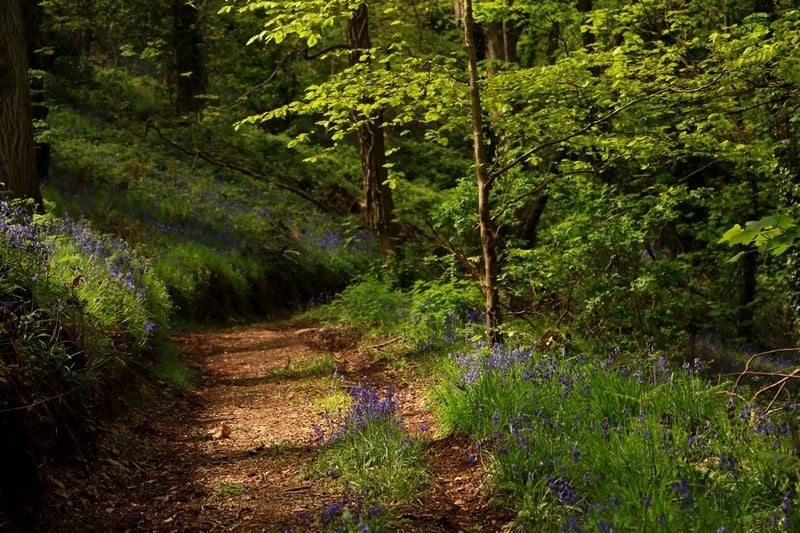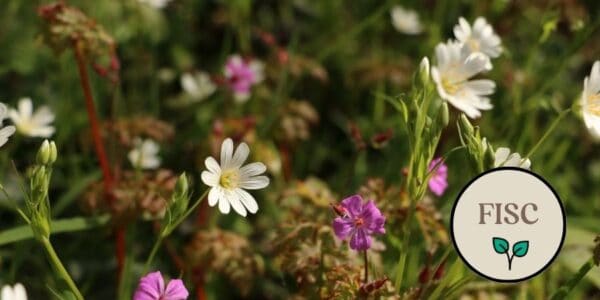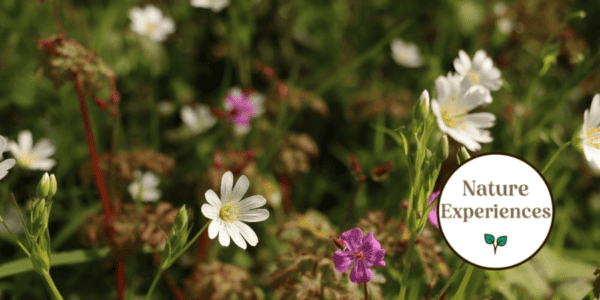This intermediate botanical course is designed for anyone who would like to increase their confidence in working with a flora as a means of identifying and getting to know more about our wonderful yet dwindling heritage of wildflowers.
The plant kingdom is hugely varied and it can be very difficult and daunting to start to identify specimens, especially for families and species that you have never seen before. Most botanists and ecologists start out identifying plants by comparing their specimens to photographs or illustrations in books. This course is aimed at professional and amateur botanists that want to progress from picture book identification onto ‘Floras’. By using simple techniques and field guides you will identify a wide range of plant families and species and gain an understanding of the terminology found within Floras. You will conduct field visits to practice your newfound botanical skills and using keys, benefiting from the rich range of habitats surrounding the Preston Montford Centre where your course will take place.
Your course will start with a revision of basic botanical structures and terminology, moving on to detailed study of a range of individual species, their characteristics and key features, and how they fit into their families. During this course you will have the opportunity to practice your plant identification skills using a range of identification resources, particularly Stace’s New Flora (3rd / 4th editions). A great part of the course will therefore be spent working through keys, which involves looking closely at the intricate and often amazingly beautiful structure of plants.
This course is a good progression for those who have experience of botanical identification but want to make their identifications more robust and reliable; equally, it will suit the complete beginner who has little or no practical experience (other than picture recognition). A systematic, flora-based approach will lead to greater success, accuracy and confidence – familiarity with using a flora certainly turns a somewhat daunting prospect into an irresistible pastime.
Tutor: Mark Duffell
Mark Duffell has had a lifetime interest in plants, gaining the RHS Diploma in Horticulture and completing an MSc in Biological Recording. He now runs Arvensis Ecology, splitting his time between conducting botanical surveys and teaching botanical identification and survey techniques to undergraduate and postgraduate students, consultancies and environmental organisations.
Example Timetable
Timetable
PLEASE NOTE 11:00 am start on Friday
This timetable is subject to change but should give an outline of what to expect.
If you have booked accommodation with the Centre your bedroom will be ready from 3.00 pm onward on the day of arrival and we ask that you vacate by 9.30 am on the morning of departure.
If numbers are sufficient a station pick up can be arranged from Shrewsbury Station.
The evening meal is at 6.30 pm
After dinner there is a classroom session 7.30 pm - 9.00 pm
The course ends at 4.00 pm on the final day.
Time will be made available for eating packed lunches during the day.
Please arrive on the first day of your course, in good time for a welcome introduction at 11:00am.
Mornings and evenings will generally be spent in the classroom studying plant specimens with the aid of the Centre’s equipment, especially books and microscopes. Site visits will take place in the afternoons. None of the visits will involve much walking but we will see a wide range of habitats from neutral grassland to moorland, limestone rocks and fen, in the beautiful setting of the Shropshire hills.
The course will start on Friday at 11:00, and finish on Monday at 16:00.
Friday:
Introduction to botanical identification, using keys to make accurate identifications, getting familiar with some common plant families.
Saturday:
Introduction to vegetative features used in botanical identification. After lunch we will head out to Colemere, to put into practice botanical skills and using keys.
Return to base for dinner, followed by looking at different types of fruits and seeds and how these can be used in botanical identification.
Sunday:
Introduction to more plant families, and building on experience gained the previous days.
After lunch a visit out to Snailbeach, concentrating on the Daisy family including a range of yellow Dandelion look-a-likes whilst there.
Return to Centre and dinner, followed by looking at constructing a botanical key to a group of species and how this can help your own use of keys.
Monday:
Lab session in morning until lunch time.
Post lunch there will be a test (a requirement for those taking the course for credits).
Non-credit participants can also join in as the test will be informal and the tutor will be on hand to lend support.
There will be plentiful opportunities for breaks during the days as appropriate.
The course will conclude with a final site visit. Credit-students will complete a second assignment at home.
What's Included
What’s included?
- Classroom learning covering the theory of the subject
- Field excursions to apply new knowledge
- Expert tuition for which we are is renowned
- Clear objectives and progression
- All meals are included EXCEPT: No packed lunch will be included on the Friday, please bring your own packed lunch and refreshments, the first meal provided will be the evening meal on day of arrival.
You can rest assured that the absolute best content from an expert in environmental education will be provided. In choosing an FSC course, you will be joining thousands of people who learn with us each year.
Before You Attend
There will be a member of staff with first aid training and access to a first aid kit on site. If you have special medical or access requirements, please let us know as soon as possible so we can make any necessary adjustments.
What to Bring
There will be some excursions out into the grounds of FSC Preston Montford, so we do advise you to bring warm, waterproof outdoor clothing with you as well as stout walking shoes or boots but most of the course takes place indoors.
- Stout walking shoes or boots
- Outdoor clothing suitable for all potential weather conditions
- Sandwich box, vacuum flask / drinks container
- Small rucksack or bag
- Field notebook and pencil
- Dissecting kit (scalpel and forceps) – if you have a set
- x10 or x20 hand lens if you possess one*
* hand lens and some books may be available to purchase, provided you pre-order by contacting Preston Montford Field Centre before-hand.
Recommended Books
- New Flora of the British Isles by Stace (CUP ideally 4th edit)
- Field Flora of the British Isles by Stace, 1999.
- The Wild Flower Key. Rose, F. and O'Reilly, C. 2006.
- Wild Flowers of Britain and Ireland, by Blamey, Fitter & Fitter, 2003.
- Common Families of Flowering Plants, by Hickey & King, 1997.
- Illustrated Glossary of Botanical Terms. 2000. Hickey, M. and King, C.
- Describing Flowers – A Guide to the structure of flowers and to their identification features. 1996. Bebbington, A. & Bebbington, J. FSC Fold-out Guide*
- Illustrated Glossary of Botanical Terms. 2000. Hickey, M. and King, C.
And/or any other books you are accustomed to using.
Sorry this course booking is closed



